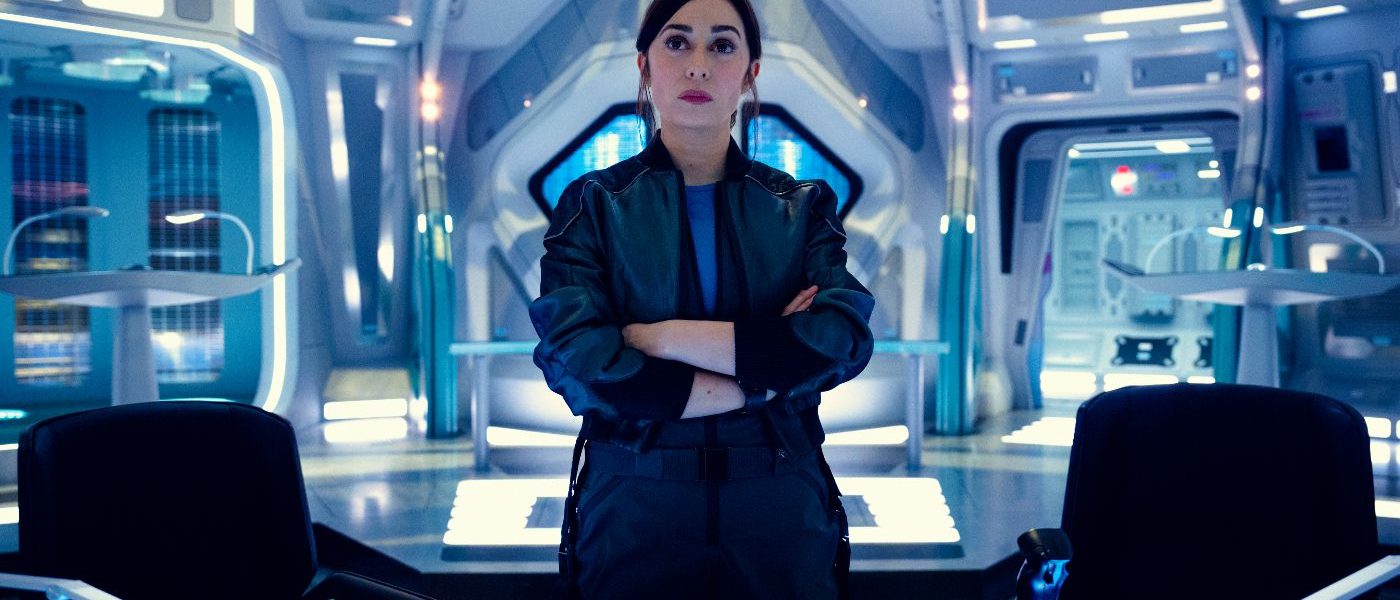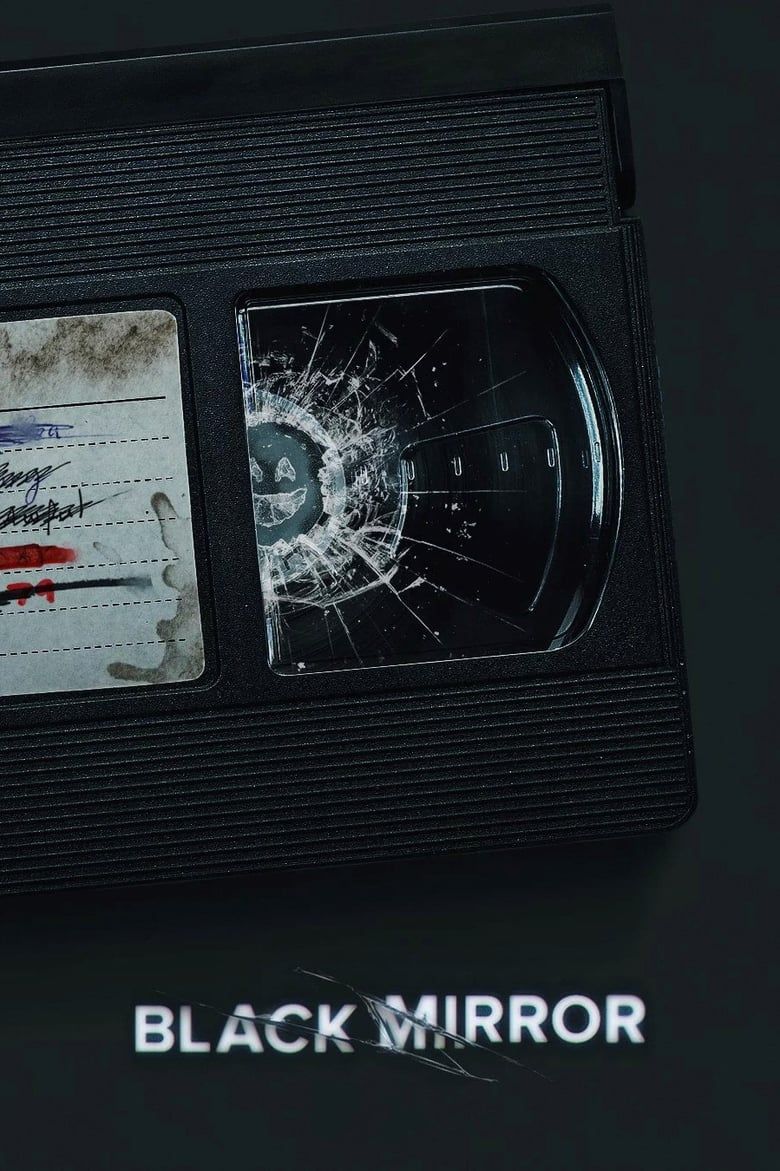In the wake of six groundbreaking seasons, with a seventh season set to premiere as you read this review, Charlie Brooker‘s Black Mirror has consistently showcased its ability to explore new narratives without repetition. Transitioning to Netflix for its third season, some critics have suggested that this shift might have led to a decline in quality. However, the sci-fi anthology series continues to delve into a variety of compelling themes. With the rapid evolution of technology and societal changes—often beneficial but sometimes detrimental—there remains a wealth of insights to discuss regarding human interaction in a digital age. Iconic episodes like “The National Anthem,” “White Bear,” and “San Junipero” have left lasting impressions on audiences, while others have been memorable primarily for their standout performances rather than their plots.
Though much of Black Mirror has traditionally dwelt in the realm of science fiction, often with a dystopian lens, Season 6 marked a significant shift by broadening its focus beyond technology as a mere plot device. This season redefined audience expectations for a Black Mirror episode. Brooker’s willingness to experiment with the show’s format may have elicited mixed reactions, yet it undeniably represented an exhilarating evolution for this long-standing series. Interestingly, this shift may partially explain why Season 7 seems to revert to its foundational elements, offering what some fans might deem classic Black Mirror storytelling. Despite this, the latest collection of narratives is also characterized by a more optimistic tone compared to its predecessors. Although it does not completely shy away from darker themes, viewers will find an abundance of emotional depth, poignant romance, and unexpected optimism throughout the season.
Discover the Themes and Innovations in ‘Black Mirror’ Season 7
In contrast to earlier seasons of Black Mirror, which often presented a more cynical viewpoint on our relationship with technology, Season 7 embarks on a fresh journey, utilizing technology as a bridge for deeper human connections. This theme is poignantly illustrated in episodes like “Hotel Reverie,” crafted by Brooker and helmed by director Haolu Wang. This episode follows an actress named Brandy Sunday (Issa Rae), who is on the hunt for her next major role, only to find herself in an AI-generated remake of a classic Hollywood film. Unbeknownst to her, she is the only character aware of the artificial nature of this world, as everyone else is a replica from the original movie. As Brandy deviates from the script, she captures the attention of the film’s leading lady, Clara, portrayed by Emma Corrin, leading to an intriguing dynamic that transcends their scripted interactions.
This bittersweet exploration of memory and loss continues in the episode “Eulogy,” featuring a poignant performance by Paul Giamatti, co-written by Brooker and Ella Road, and directed by Chris Barrett & Luke Taylor. This narrative centers on a man who unexpectedly learns of an old flame’s demise and is compelled to confront his memories of her through the lens of her daughter, who is organizing a memorial service. As is typical for Black Mirror, revisiting the past can yield unforeseen and often painful consequences. Other episodes, such as “Bête Noire” and “Common People,” embrace the series’ familiar elements of dark comedy and escalating despair, yet they do not overshadow the emotional resonance found in Season 7’s most impactful moments.

Related
All the Biggest Shows and Movies Hitting Netflix in April — From New Seasons of ‘Black Mirror’ and ‘You’ to a Tom Hardy Action Banger
Hey, ‘You.’
Two of this season’s Black Mirror episodes can be viewed as sequels to earlier stories. The continuation of “USS Callister,” titled “Into Infinity,” serves as a feature-length narrative that expands on the journey of the titular ship, captained by Nanette Cole (Cristin Milioti). Following their daring escape from Robert Daly’s (Jesse Plemons) Space Fleet simulation, the crew now faces new challenges within the expansive Infinity multiplayer game. Their bold decision at the end of the previous episode has forced them to scavenge for resources and steal in-game credits from actual players who face none of the dire stakes that they do, as those players can simply respawn after each defeat.
The second sequel of Season 7 is less anticipated; the return of Will Poulter‘s Colin Ritman, an eccentric yet brilliant programmer from the choose-your-own-adventure film Black Mirror: Bandersnatch, was an exciting surprise in the Season 7 trailer. His reappearance in the episode “Plaything,” written by Brooker and directed by David Slade, offers delightful twists that are best left undisclosed. The most significant link connecting many episodes this season is the experiencer disk, a neural device allowing characters to immerse themselves in various digital realms. This device has appeared in episodes like “Striking Vipers,” “San Junipero,” and “USS Callister,” but in Season 7, it recurs frequently, suggesting that Black Mirror is embracing greater interconnectivity than ever before.
Unforgettable Performances: The Stellar Cast of ‘Black Mirror’ Season 7
While earlier Netflix seasons of Black Mirror have faced critiques regarding the perceived “Americanization” of the series, it is undeniable that Season 7 features a remarkable ensemble cast that adds depth to each episode. Season 7’s lineup is filled with talented actors who bring their characters to life in compelling ways. Episodes like “Hotel Reverie” and “Eulogy” showcase outstanding performances from Corrin and Giamatti, who are arguably delivering some of the best work of their careers. Giamatti, in particular, captivates audiences as he navigates the emotional landscape of his character in “Eulogy,” offering vulnerability that makes it impossible to look away. Moreover, it’s a treat to see familiar faces such as Milioti, Jimmi Simpson, Billy Magnussen, and others from the “USS Callister” crew as they venture into entirely new and unfamiliar virtual terrains in “Into Infinity,” which combines humor and action to expand on the original narrative.
Although all episodes of Black Mirror Season 7 are released simultaneously, this collection is best enjoyed at a leisurely pace. Rushing through the episodes would miss the subtle emotional undertones that resonate throughout the season, especially given its topical relevance. Featuring a stellar cast, profoundly impactful stories, and several familiar returning faces, Black Mirror Season 7 stands as a crowning achievement in the series’ Netflix journey.
Black Mirror Season 7 is currently available for streaming on Netflix.
Black Mirror
With a star-studded cast, some surprisingly poignant stories, and more than one returning face, Black Mirror Season 7 is, overall, the series’ best installment yet in its Netflix era.
- Release Date
-
December 4, 2011
- Network
-
Channel 4, Netflix
- Directors
-
Owen Harris, Toby Haynes, James Hawes, David Slade, Carl Tibbetts, Ally Pankiw, Bryn Higgins, Dan Trachtenberg, Euros Lyn, Jodie Foster, Joe Wright, John Hillcoat, Sam Miller, Tim Van Patten, Uta Briesewitz, Colm McCarthy, Jakob Verbruggen, James Watkins, John Crowley, Otto Bathurst, Anne Sewitsky, Brian Welsh
- Season 7 returns to its roots, embracing classic sci-fi themes.
- The season features several emotionally impactful and poignant episodes.
- Standout performances from Paul Giamatti, Emma Corrin, and Cristin Milioti elevate the viewing experience.
- The interconnectedness of the stories feels stronger than ever, especially with the “USS Callister” sequel.







